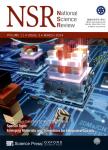Dog10K: the International Consortium of Canine Genome Sequencing
Dog10K: the International Consortium of Canine Genome Sequencing作者机构:State Key Laboratory of Genetic Resources and Evolution Kunming Institute of Zoology Chinese Academy of Sciences Center for Excellence in Animal Evolution and Genetics Chinese Academy of Sciences Palaeogenomics and Bio-Archaeology Research Network School of Archaeology University of Oxford Department of Human Genetics and Department of Computational Medicine and BioinformaticsUniversity of Michigan Medical School Ecology & Evolutionary Biology Princeton University National Human Genome Research InstituteNational Institutes of Health
出 版 物:《National Science Review》 (国家科学评论(英文版))
年 卷 期:2019年第6卷第4期
页 面:611-613页
核心收录:
学科分类:0710[理学-生物学] 07[理学] 0905[农学-畜牧学] 09[农学] 071007[理学-遗传学] 090501[农学-动物遗传育种与繁殖]
基 金:supported by a number of entities,including grants from the National Natural Science Foundation of China(91731304 and31621062) the Breakthrough Project of Strategic Priority Program of the Chinese Academy of Sciences(XDB13000000) the Intramural Program of the National Human Genome Research Institute of the National Institutes of Health to E.A.O.,a CAS International Collaborating Grant(152453KYSB20150002 to G.-D.W.) a Young Innovation Promotion Association Award(to G.-D.W.)
主 题:the International Consortium of Canine Genome Sequencing Dog10K
摘 要:Dogs (Canis lupus familiaris) were the first species to enter into a domestic relationship with people [1] and are a source of fascination all over the world, not only due to their history of domestication and dispersal along with human beings [2],but also because of their diverse phenotypes and behaviors, driven by both artificial and natural selection [3]. Dogs



